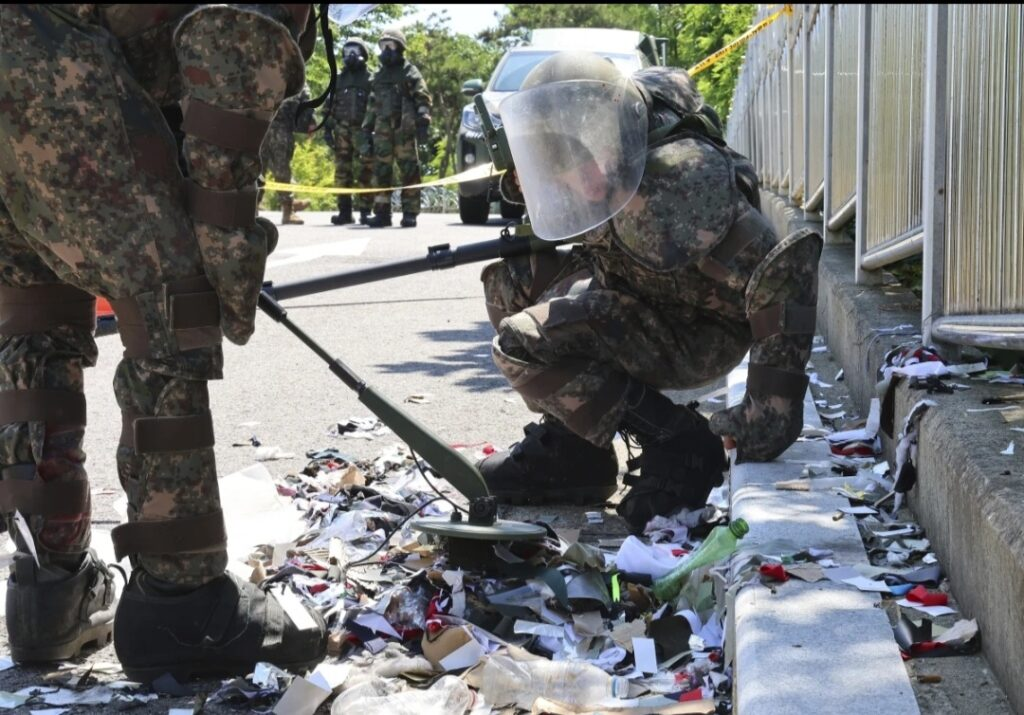
In a resurgence of cross-border tensions, North Korea has resumed its practice of launching balloons filled with trash into South Korea. This provocative action follows a renewed effort by South Korean activists to send anti-regime leaflets into the North, despite warnings from Pyongyang. The South Korean military confirmed that North Korea has sent hundreds of these trash-laden balloons across the border, marking the third such campaign since late May.

North Korea's vice defense minister, Kim Kang Il, had previously stated that the balloon campaigns would be halted but issued a stern warning that they would resume if South Korean activists continued their leafletting efforts. Defying this warning, a group led by North Korean defector Park Sang-hak launched 10 balloons from a border town, each carrying 200,000 anti-North Korean leaflets, USB sticks containing K-pop songs and South Korean dramas, and $1 U.S. bills. Another activist group reportedly sent a similar number of propaganda leaflets the following day.
In response, North Korea retaliated by sending balloons filled with trash, including plastic waste, paper, and manure, back into South Korean territory. The South Korean Joint Chiefs of Staff reported detecting around 330 balloons launched by North Korea since Saturday night, with about 80 balloons found on South Korean soil by Sunday morning. Fortunately, no hazardous substances were discovered in the debris.
The ongoing balloon war has led South Korea to suspend a 2018 agreement with North Korea that was designed to reduce tensions between the two nations. This suspension allows South Korea to resume live-fire military exercises and anti-North Korean propaganda broadcasts along the border. These actions are likely to further inflame tensions, prompting potential retaliatory measures from North Korea.
The South Korean military has mobilized chemical rapid response and explosive clearance units to retrieve the North Korean balloons and their contents. Citizens have been warned to avoid any fallen objects and to report them to the authorities. While the trash poses no significant immediate threat, the psychological and environmental impact of the campaign adds to the strain between the two Koreas.
North Korea's sensitivity to such leafletting campaigns is well-documented. The regime, led by Kim Jong Un, strictly controls access to foreign information and views the propaganda efforts as a direct challenge to its authority. The leaflets, often critical of Kim Jong Un and his government, aim to inform North Korean citizens about the outside world and inspire dissent against the regime.
Experts suggest that North Korea's balloon campaign serves multiple purposes. Beyond retaliation, it aims to sow discord within South Korea, particularly between the government and conservative activist groups. The conservative administration in South Korea has adopted a tough stance on North Korea, a position that some liberal lawmakers, civic groups, and residents in frontline areas criticize, arguing that it escalates unnecessary clashes.
South Korean officials have condemned North Korea's trash balloon launches as "absurd" and "irrational," vowing strong retaliation. However, the government has refrained from asking activists to cease their leaflet campaigns, aligning with a constitutional court ruling that struck down a law criminalizing such activities on free speech grounds.
As tensions continue to simmer, the situation underscores the fragile and volatile nature of inter-Korean relations. Both sides appear entrenched in their positions, with little sign of a diplomatic breakthrough on the horizon. The trash balloon incidents, while seemingly minor in the grand scheme of military confrontations, reflect deeper underlying issues that continue to plague the Korean Peninsula.











